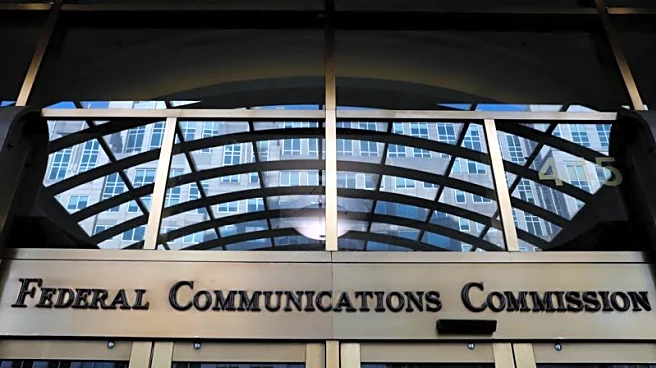What's Happening?
Walt Disney Co. has issued a warning that its channels, including ESPN and ABC, may be removed from YouTube TV due to a dispute over carriage fees. The current agreement between Disney and YouTube TV is set to expire on October 30, 2025. If a new deal
is not reached, millions of subscribers could lose access to popular programming such as NFL, college football, NBA, and NHL games, as well as shows like 'Good Morning America' and 'Dancing with the Stars.' Disney has accused YouTube TV, owned by Google, of exploiting its market position to impose unfavorable terms on content providers. In response, YouTube TV has offered a $20 credit to subscribers if the blackout occurs, stating that Disney's demands would lead to higher costs for consumers.
Why It's Important?
This dispute highlights the ongoing tension between streaming services and traditional media companies over retransmission fees. As streaming platforms like YouTube TV gain popularity, they wield significant influence over content distribution, which can impact the financial dynamics of media companies. The outcome of this negotiation could set a precedent for future carriage agreements, affecting how content is priced and distributed across streaming platforms. Consumers stand to lose access to major sports and entertainment programming, which could influence their subscription choices and loyalty. Additionally, the dispute underscores the competitive landscape as Disney's own streaming services, such as Hulu + Live TV, directly compete with YouTube TV.
What's Next?
If no agreement is reached by the October 30 deadline, YouTube TV subscribers will lose access to Disney's channels. This could lead to increased pressure on both companies to negotiate a resolution to avoid subscriber dissatisfaction and potential loss of revenue. Other media companies and streaming services will likely monitor the situation closely, as the outcome could influence their own negotiations and strategies. The possibility of government intervention or regulatory scrutiny may also arise if the dispute significantly impacts consumer access to content.
Beyond the Headlines
The dispute reflects broader industry challenges as traditional media companies adapt to the digital age. The rise of streaming services has fragmented audiences and altered revenue models, prompting legacy media companies to seek higher fees to compensate for declining traditional viewership. This shift raises questions about the sustainability of current business models and the future of content distribution. Additionally, the role of major tech companies like Google in shaping media landscapes may attract regulatory attention, particularly regarding market dominance and consumer choice.
















